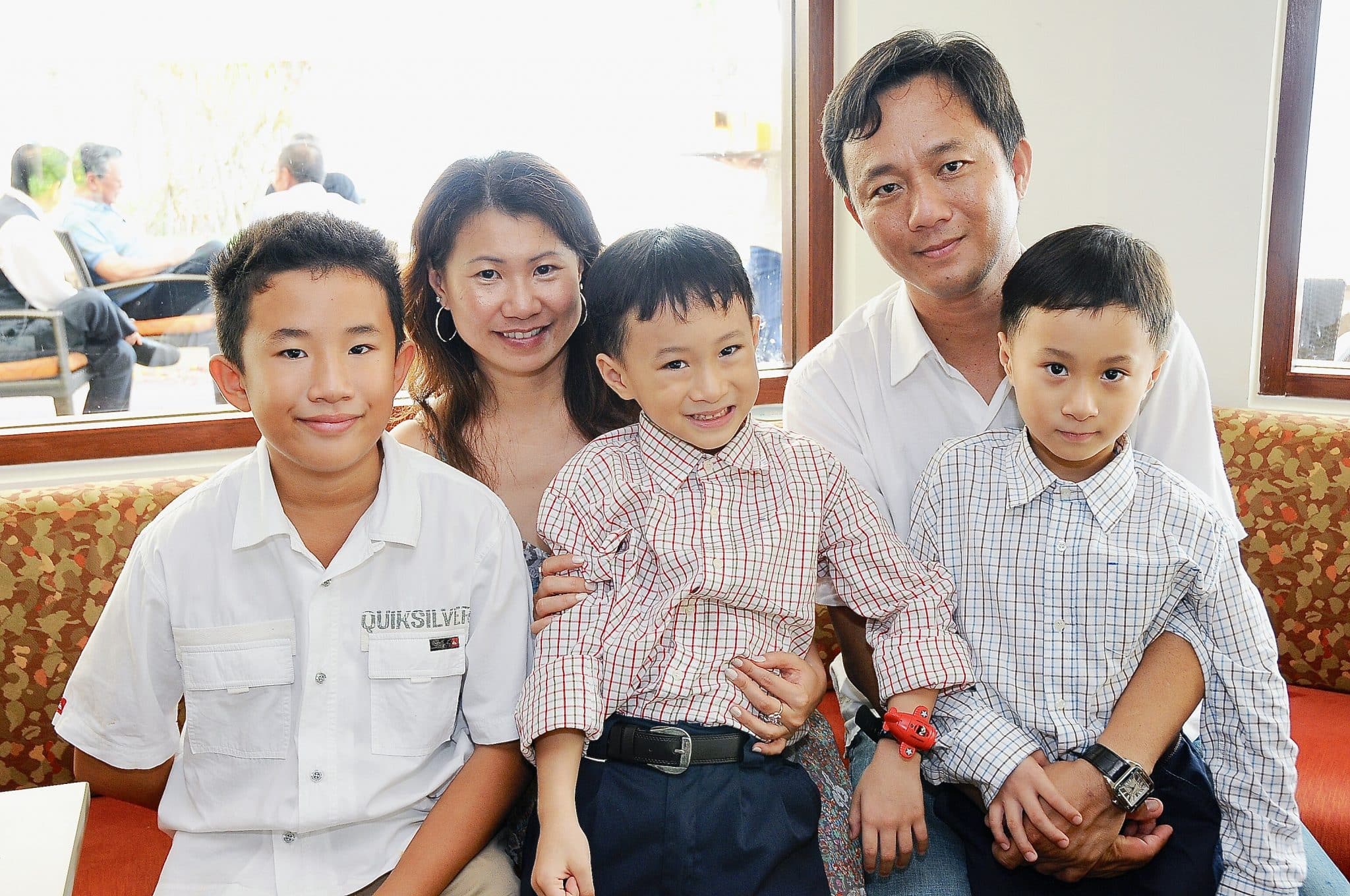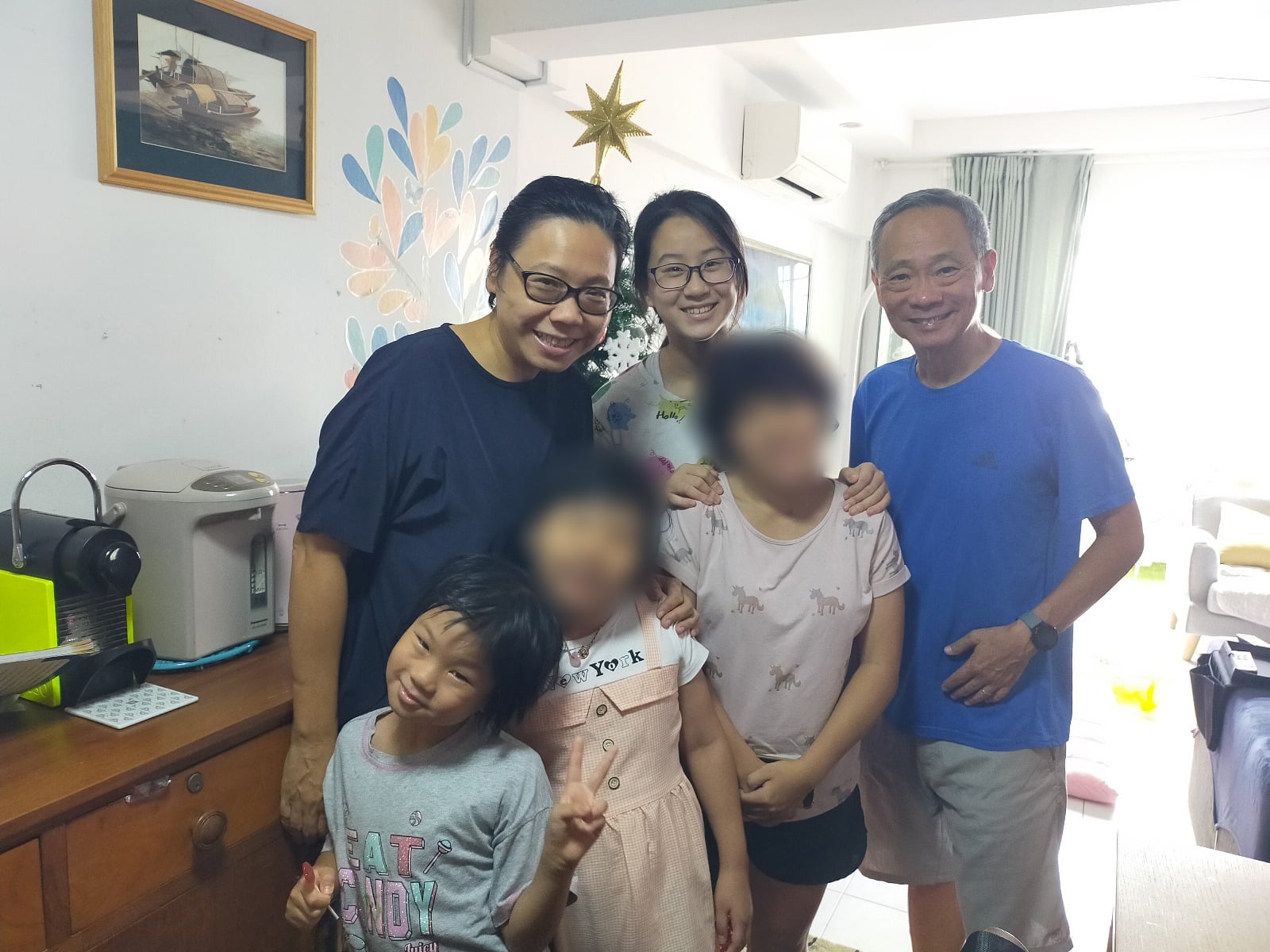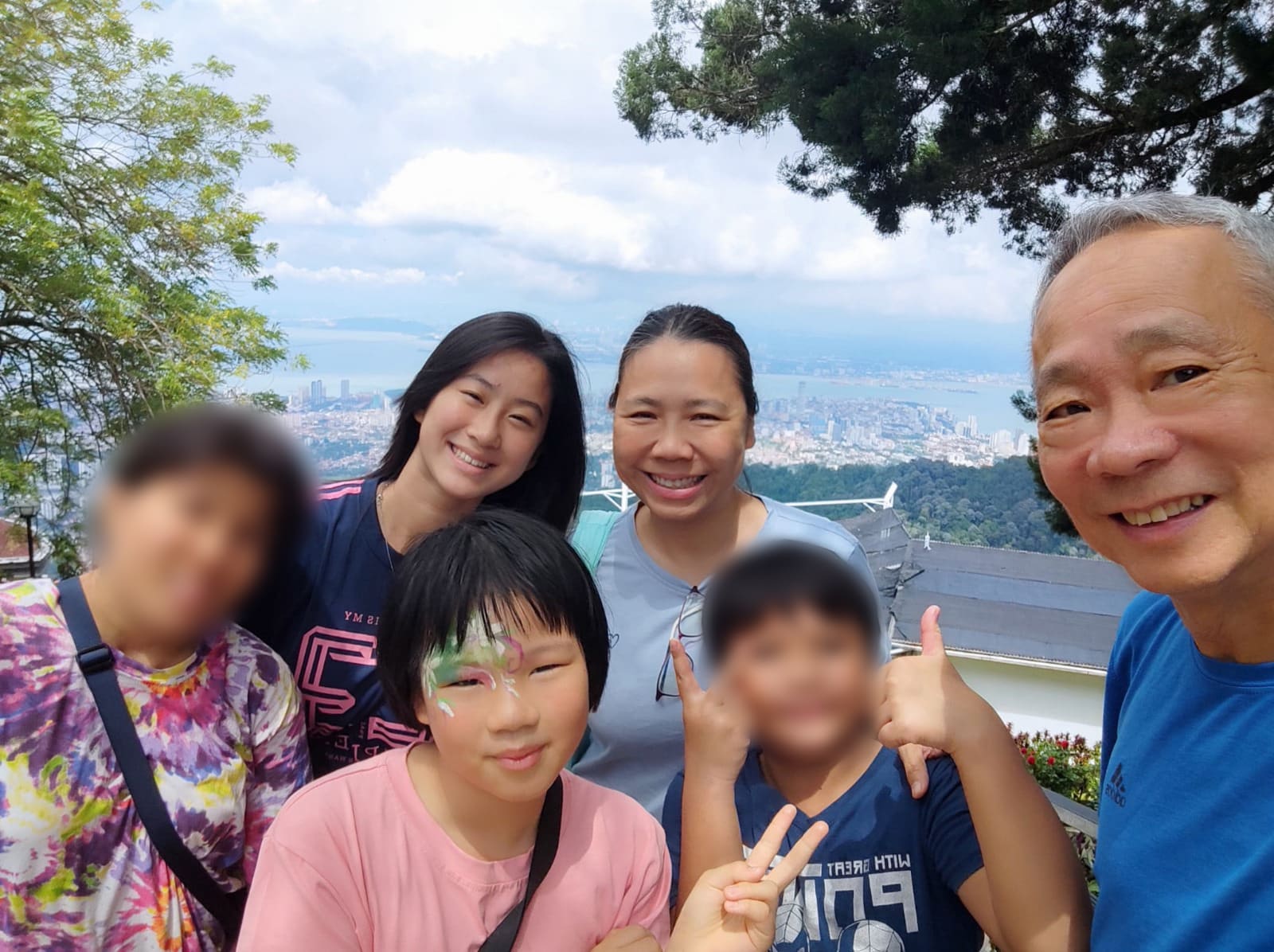Children with learning difficulties: Care Corner steps in to help low-income families
Christine Leow // August 20, 2020, 5:00 pm
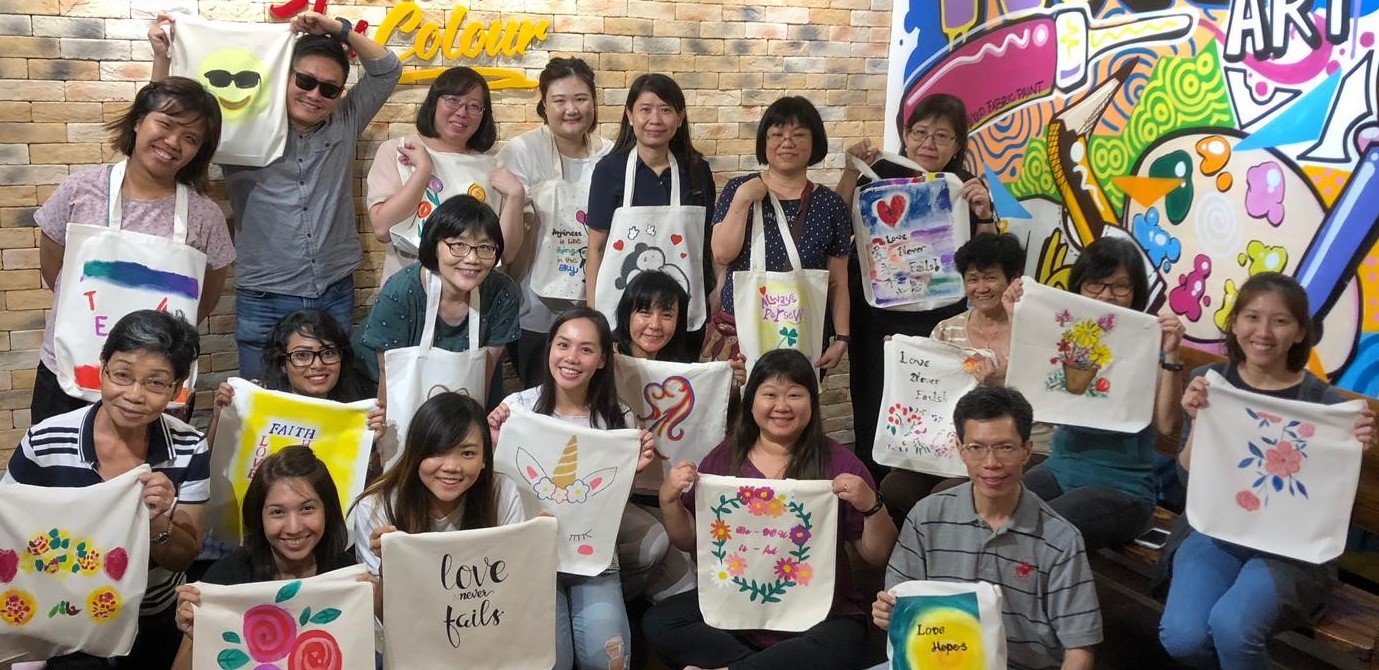
Isaac Tan (bottom right in grey) and the team at Care Corner Educational Therapy Service have used their specially designed programme to help children from low-income families with learning disabilities. Photo courtesy of Care Corner Educational Therapy Service.
It began with a few 11-year-olds nearly 20 years ago.
“They came to our Family Service Centre and were already in Primary Five. But they couldn’t even do Primary Two Math,” said Isaac Tan, 51, clinical director of Care Corner Educational Therapy Service (ETS).
Seeing them struggle with their studies strengthened Tan’s resolve to start a programme within Care Corner to help children with learning disabilities.
“There weren’t many resources for these children back then and even less awareness in the community,” explained Tan.
“They were already in Primary Five. But they couldn’t even do Primary Two Math.”
Even if the families could recognise their children’s condition, getting help to improve their academic skills and cognitive function was something the low-income and middle-income families could ill afford.
“Those with more severe special needs already had special schools, but these children who were in mainstream schools were falling through the gap.”
So, in 2002, Tan, along with another Care Corner colleague, started ETS within Care Corner. The non-profit organisation had already been helping low-income families since 1981 by providing care, counselling and resources. ETS added to their menu of services, catering to children aged five to 13 with a range of learning difficulties and conditions.
Trained educational therapists in ETS’s three centres – Tampines, Toa Payoh and Woodlands – support pre-schoolers and Primary School children with Attention Deficit Hyperactivity Disorder (ADHD), Autism Spectrum Disorder, Sensory Processing Disorder, dyslexia and developmental delay.
Specialist tuition
Tan, an Engineer who quit his job after a few years in the industry to “follow God’s leading to help the marginalised”, developed a Specialist Tuition programme to help the children academically.
Tan quit his job after a few years in the industry to “follow God’s leading to help the marginalised”.
“We saw that their most pressing needs were to improve their English and Math. They needed literacy and numeracy skills.
“But if we only helped them in those areas, these families would still have to spend additional money and time to bring them for tuition elsewhere to cope with the school work,” said Tan.
So the programme covers the Ministry of Education (MOE) curriculum for Primary School as well.
Trained education therapists use specialised methods designed for children with learning difficulties. For example, with Concrete-Representational-Abstract (CRA), instead of starting out with written words, numbers and symbol, concrete teaching materials and pictures are used instead.
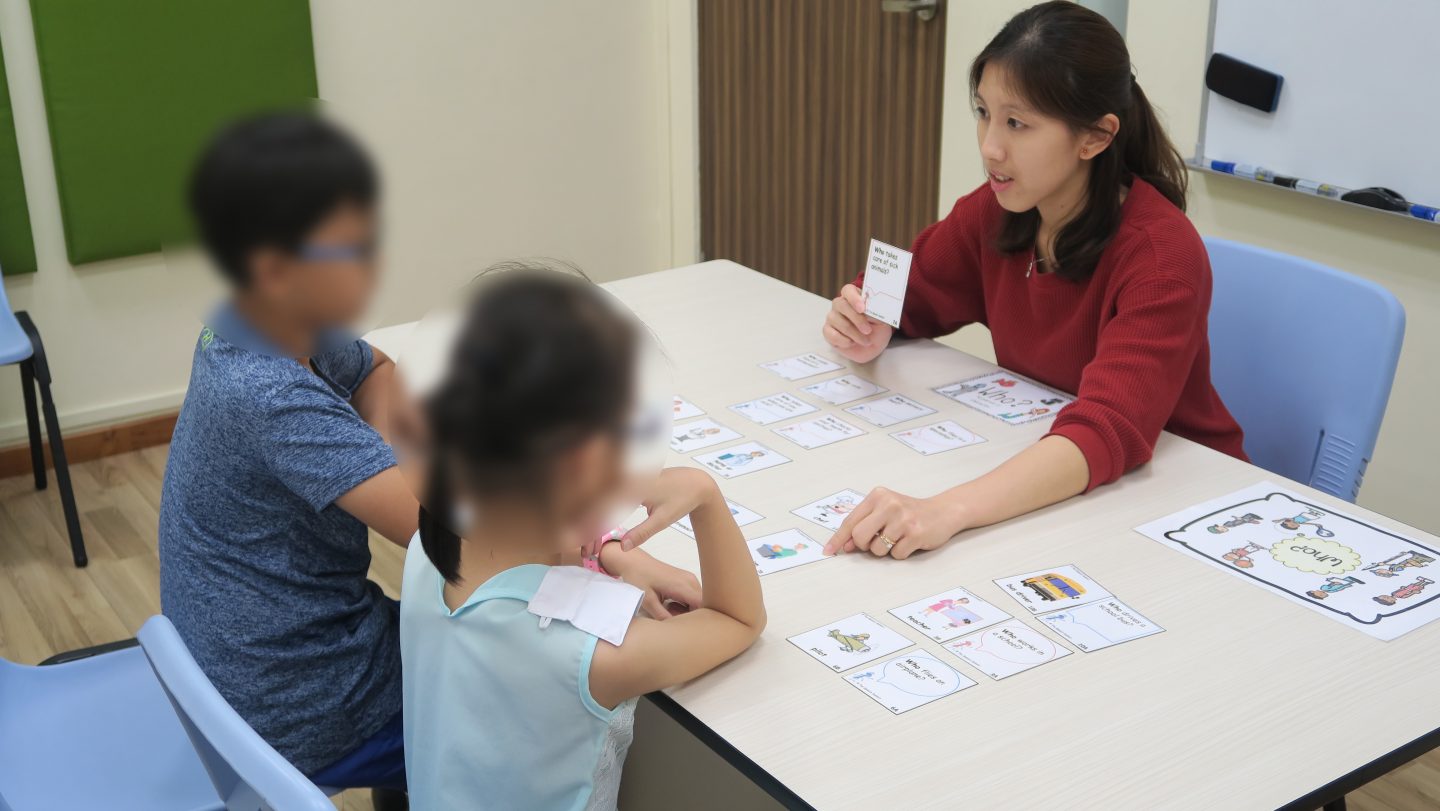
The Specialist Tuition programme involves breaking down abstract Math concepts into relatable concrete items that can be easily understood. Photo courtesy of Care Corner Educational Therapy Service.
Tan also made sure the programme raises children’s self-esteem and motivation. A psychotherapeutic approach is used that involves constant encouragement and affirmation while dealing with minor behavioural issues.
Fees are subsidised on a sliding scale based on financial situations. Those from the poorest families can get up to 90% subsidy.
Underlying cognitive difficulties
But as ETS progressed, Tan noticed other needs.
One particular incident stuck in his mind. He was in a one-to-one consultation with a mother of a child with ADHD. Her son in lower Primary was giving the school many disciplinary challenges.
“Her stress level was so high she contemplated suicide.”
“She had to see the school’s discipline master every few months. Her son would pee in his friend’s bag or throw his friend’s bag onto the roof. He couldn’t complete his school work.
“Her stress level was so high she contemplated suicide. She considered medication for her son but her husband and parents-in-law were against it because they were concerned about the side effects,” said Tan.
“It made me think we have to come up with a programme to address these needs.”
So, Tan spent time researching and learning about different innovative therapies and interventions from various countries to enhance the neuro-development of children.
That led to the launch of the KidsBright Programme in 2005, a brain development programme designed for children with neuro-developmental differences like ADHD, dyslexia, autism as well as for those who have difficulty in reading, writing, spelling, speech, Math, memory and attention, impulse control or are hyperactive.
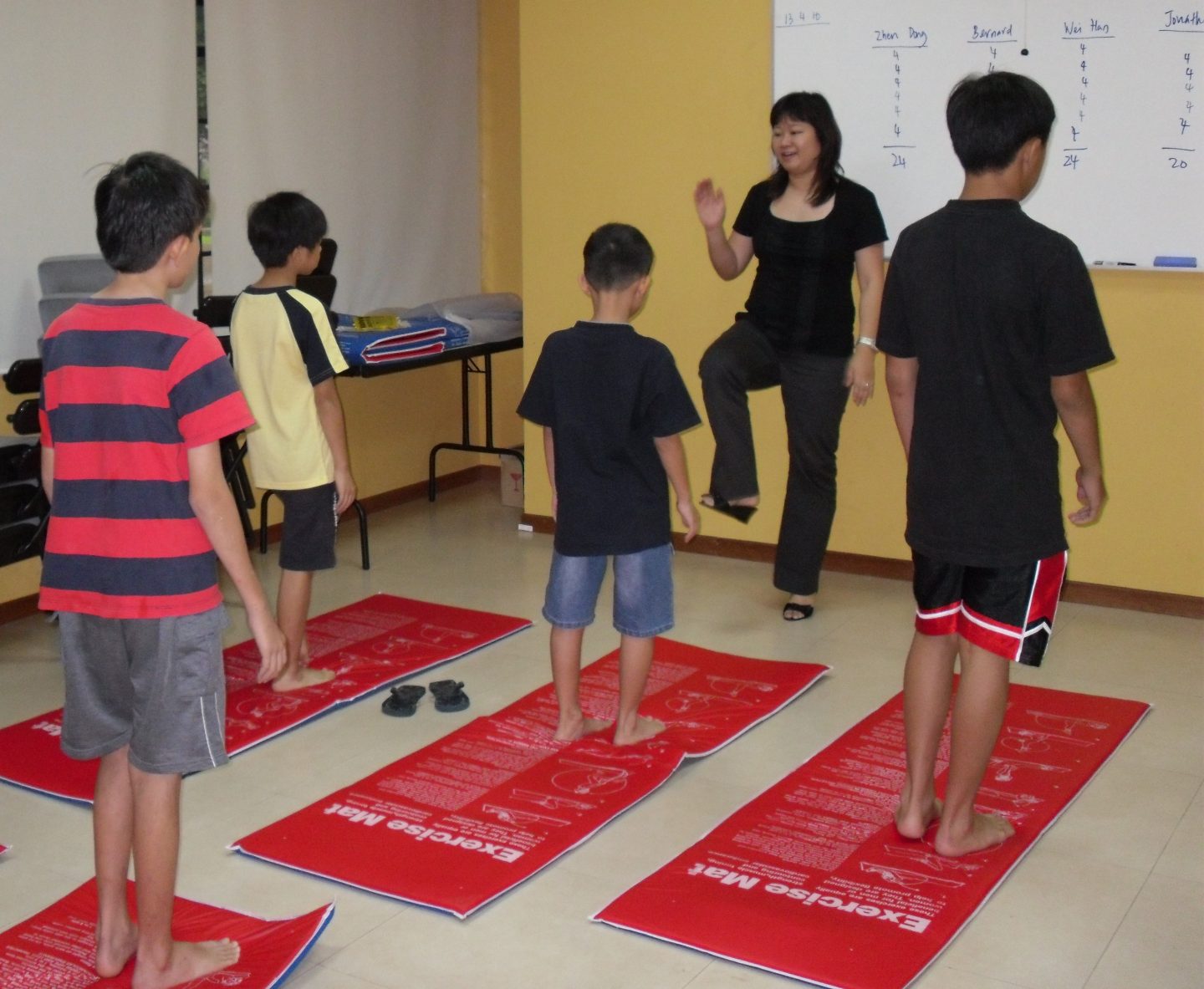
The KidsBright programme includes movement to help with better coordination and cognition. Photo courtesy of Care Corner Educational Therapy Service.
The programme also advocates a balanced diet free of artificial food additives such as colours and preservatives.
“This gives parents an alternative to consider apart from medication.”
“Studies done in the UK have found that these food additives lessen children’s attention and increase impulsivity and hyperactivity,” said Tan.
He proposes healthy snacks and wholegrain foods instead.
Meanwhile, mental exercises involving quick calculations, activates the prefrontal cortex of the brain. It is based on research by Professor Ryuta Kawashima from Tohoku University.
“This gives parents an alternative to consider apart from medication,” said Tan.
He would do his mental and physical exercises even when “everyone was laughing at him at home”.
One Primary Schooler diagnosed with ADHD attended the programme and loved it so much, his mother reported that he would do his mental and physical exercises even when “everyone was laughing at him at home and questioning how the exercises could help to improve his condition”.
“When I am busy, or out for appointments, he would approach his siblings or helper to help him with the exercises. He will even teach them the exercises,” said his mother, Serene Sng.
Within months, he did well in his Continual Assessment in school and during meal times, he could even sit and finish his meal with his siblings instead of walking around.
Mountains God moves
The work has been rewarding but it has by no means been easy.
“The more children we help, the more subsidies we need and the higher the cost. Funding has been our biggest need,” said Tan.
“We almost considered closing many years ago because of the funding challenges.”
Growing from a two-man operation in a single centre to 17 therapists in three centres “so we are accessible to more people” has been, for Tan, a journey of faith.
“I learnt that there is no mountain too big for God to move when we really rely on Him to help.”
“I learnt that there is no mountain too big for God to move when we really rely on Him to help. Sometimes, I’m amazed that God can provide in ways we can’t imagine.”
When they wanted to expand into Woodlands, they could not find a location convenient enough for the parents “near the MRT” nor one of the right size that “can’t be too big, can’t be too small”.
“We even went to the community centre. Eventually, we were allowed to use an RC (Residents’ Committee). Somehow when we called upon God, the link to an RC was established,” mused Tan.
ETS was allowed to use two newly renovated rooms in an RC for free, complete with free WiFi.
“It was beyond our wildest dream.”
The hope is that ETS can open more centres in the future to be more accessible.
“Our vision is that we can be better channels – in terms of quality and reach – of God’s love to help these children and their parents.”
“Disabled does not mean unable”: 10 persons with special needs ascend Mount Fuji
“We will not choose”: Parents who adopted four babies, three with special needs
We are an independent, non-profit organisation that relies on the generosity of our readers, such as yourself, to continue serving the kingdom. Every dollar donated goes directly back into our editorial coverage.
Would you consider partnering with us in our kingdom work by supporting us financially, either as a one-off donation, or a recurring pledge?
Support Salt&Light
